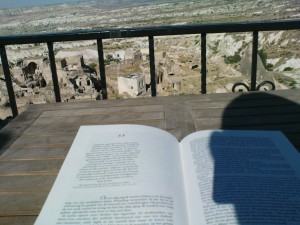Protest: The Beat Generation and the Angry Young Men, Panther Books edition.
I first read Colin Wilson in 2004 when I found The Outsider in a tiny second-hand bookstore about five hundred meters from where I live. This unrecognized — yet extremely prolific — author is very likable for several reasons: his autodidacticism; his love of the outsider and the misfit; his nobrowness and his dislike of pessimism and the pessimist existentialism of Sartre et al. He put the latter this way in a 2004 interview:
When I was in Paris in the early 1950s, Samuel Beckett had just been discovered. Waiting for Godot was on in Paris and I thought ‘What fucking shit! Who is this half-witted Irishman who’s going around saying life’s not worth living? Why doesn’t he just blow his brains out and shut up?’ I felt the same about Graham Greene and Evelyn Waugh, and later on others such as William Golding. I had always had a passionate feeling that certain people I deeply approved of – like G K Chesterton, who spoke of ‘absurd good news’, for example – and people like Thomas Traherne… the mystics in general, that they were saying that we’re basically blind.
The Misfits is the book of Wilson which made the biggest impression on me. Among other things, it observes how John Cleland in Fanny Hill succeeded in slowing down time (and for me defined the concept of slow motion in literature): “the time it takes to read [some scenes] is obviously a great deal longer than the time it took to do.”
I’ve given attention to Colin Wilson on numerous occasions. At Jahsonic.com[1], on this blog[2].

